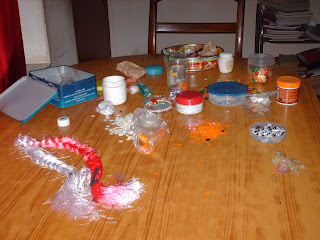On September 24, 2004, Rahela Akhter Lima’s suffering ended after nearly a month of unimaginable pain after her assailants left her for dead and then came back to torture her some more. She was a strong-willed garment worker-housewife aged only 20 years from Savar. Today marks her third death anniversary.
Has Rahela received any justice after three years by the arrests, convictions, and exemplary punishment of her assailants? Has her death and suffering made women safer in Bangladesh? Or like many other sensational cases, has Rahela been forgotten except by her near and dear ones after the initial stories and demonstrations in August and September 2004? Are her assailants still roaming freely around the streets of Savar, Jahangirnargar University, and Dhaka?
During that long month, she survived long enough to bravely name two assailants, Linton and Delwar—former college classmates--and two other miscreants—Akash and Kabir-- who took her belongings, raped her, slit her tendons and cut into her spinal cord, and left her in a Jahangirnagar University garden on 22 August. They returned on 24 August and found her still alive; they added further insult to her injuries by pouring acid on her! After three days and two nights of suffering, a gardener found her and police took her to Dhaka Medical College Hospital where she struggled against infected wounds, severed spinal cord, and paralysis until she died on 24 September.
As often occurs, despite her mother Rokeya filing a case with Savar thana, the accused men absconded, and Liton reportedly disappeared into India. Police arrested only his brother who had helped him escape. During September, many women’s and labor organizations in Savar and other locations protested violence against women, recent rapes of garment women workers, and in particular, the gruesome treatment of Rahela and that her attackers continued to roam freely (Mahila Parishad, Karmajibi Nari, Ain-O-Shalish Kendra, Samajtantrik Mahila Forum, Bangladesh Jatiya Sramik Jote, Nari Sramik Jote, Sammilita Nari Samaj, Bangladesh Legal Services Trust, and National Garment Workers Federation among others. After a 25 Sept 04 Daily Star article, no further articles appeared on her case or reported any progress on apprehending Liton and others. Rahela’s case seemingly disappeared among the articles on the September and October floods and monsoon rains as have many other cases of violence against women since then.
Given the ongoing violence against women, these organizations moved on to protest other cases and lax law enforcement. Speakers and researchers from the One-Stop Crisis Centre reported that garment workers and students are particularly vulnerable to such assaults, sexual harassment, and eve-teasings as they move about from home and work. Ironically, these women are the future and earners of Bangladesh, but still face the dangers of the streets going to and from work and school.
Despite the monthly litany of newspaper reports and clippings on violence against women in Bangladesh by various women’s and advocacy groups, who is conducting any follow up or monitoring these cases? Who is monitoring the police, prosecutors, and justice for the victims and punishment for the eve-teasers (whose actions have led to suicides among their targets), domestic abusers, rapists, and murderers? Will Rahela and any of her forgotten departed sisters ever receive justice?
Today and other years, I remember her courage to name her assailants, her strong will to live despite her injuries, and extraordinary struggle and sacrifice as I work to end violence against women, children, and men. I hope that her soul has found some peace.
Note: By Dr. Kathryn B. Ward, Professor of Sociology-Women's Studies, Southern Illinois University-Carbondale, IL USA. This piece has been based on English newspaper clippings from August and September that I collected while in the USA waiting to go to Bangladesh for my Senior Fulbright Fellowship and to conduct research on women workers and violence against women. (clippings from New Age, Daily Star, New Nation, among others—available on request). Rahela’s story touched me very much. When I left USA on 22 September 2004 Rahela was barely alive. She died some time during my journey to Bangladesh.
also crossposted on
bideshi blue




















